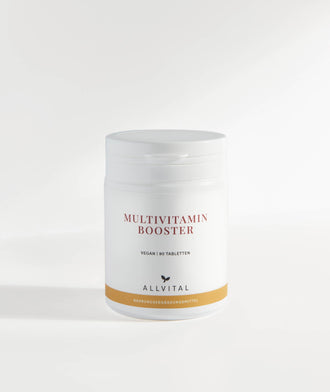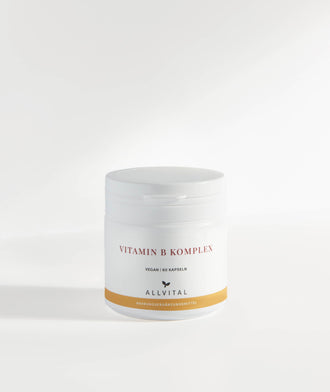
Mental health in focus: Tips for a strong mind
Our mental health is a crucial component of our overall well-being. It influences how we think, feel, and handle life’s challenges. Moreover, it significantly impacts our physical health.
Blue Monday – the most depressing day?
The so-called Blue Monday, allegedly the most depressing day of the year, falls on the third Monday in January. January is often considered the toughest month for mental health. Long nights, darkness, cold weather, the post-holiday slump, and failed New Year’s resolutions are all cited as reasons for feeling down.
Although Blue Monday is not scientifically substantiated and originates from a PR campaign promoting winter travel, it serves as a reminder to take care of our mental health year-round, not just in January or the winter months.
An increasing number of people affected by depression
The number of people suffering from depression in Germany and worldwide continues to rise. According to the latest figures from the "Health Atlas Germany," around 12.5% of adults in the country, approximately 9.5 million people, are affected by depression (as of 2022). Women are more frequently affected than men (1).
Typical symptoms of depression include feelings of meaninglessness and worthlessness, loss of interest and pleasure in hobbies, concentration and sleep disturbances, low energy, and, in severe cases, suicidal thoughts. The steady increase in affected individuals is alarming, prompting questions about the causes of this trend.
How does depression develop?
Depression is a complex disorder triggered by various factors. Alongside genetic predispositions, environmental and lifestyle factors play a crucial role. Given that the genetics of a population do not change rapidly, it is essential to focus on environmental and lifestyle factors to understand the increasing prevalence of depression.
A holistic approach to treating depression considers a wide range of possible factors. The following list highlights how multifaceted this condition is and does not claim to be exhaustive.
Possible contributing factors to the development of depression include:
- Micronutrient deficiency: Vital nutrients such as B vitamins, Vitamin D, magnesium, and Omega-3 fatty acids are essential for the nervous system. A deficiency in these substances can disrupt the normal function of nerve cells. Increasing numbers of people are affected by micronutrient deficiencies.
- Environmental toxins: Exposure to pollutants such as heavy metals or pesticides can negatively affect the brain and nervous system. Our environment and food are increasingly contaminated.
- Unhealthy diet: A diet high in additives, sugar, and trans fats can promote inflammation in the body and impair cellular function. The consumption of fast food and processed foods has increased significantly in recent decades.
- Birth control pills: Studies show a link between the use of hormonal contraceptives and the onset of depression (2).
- Chronic negative stress and psychological trauma: Prolonged stress and unresolved trauma can disrupt hormonal balance and contribute to the development of depressive symptoms.
- Lack of physical activity: Regular physical activity promotes the production of endorphins, which have mood-lifting effects, and supports nervous system health. Conversely, a sedentary lifestyle increases the risk of depression (3).
- Sleep deprivation: Sleep is crucial for brain regeneration. Chronic sleep deprivation can lead to mood swings and exhaustion.
- Gut health disturbances: The gut and brain are closely connected. An intact gut barrier and healthy gut flora are vital for mental health and normal nervous system function.
- Hypothyroidism: An underactive thyroid can cause fatigue, lack of motivation, and depressive moods.
- Chronic infections: Various chronic infectious agents (e.g., Bartonella) are associated with the development of mental health disorders.
This brief overview underscores the complexity of depression’s causes. A comprehensive approach is crucial to prevention and treatment, encompassing both mental and physical health strategies.
Tips for a strong mind
Below you will find a series of helpful strategies to strengthen your mental health. Everyone is different – choose the approaches that best fit your life and incorporate them into your daily routine. Small changes can often have a significant impact!
Tip 1: Cultivate gratitude
The feeling of gratitude has a profound impact on our mental health. Regularly experiencing gratitude shifts our focus to abundance and satisfaction rather than a sense of lack and dissatisfaction.
A simple yet powerful way to cultivate gratitude is to keep a gratitude journal. Take a few minutes each day to write down three things you are grateful for. It’s important to consciously allow the feeling of gratitude to arise and truly feel it.
Tip 2: Meditation and mindfulness
Meditation and mindfulness exercises are proven methods to calm the mind and reduce stress. By consciously directing your attention, you learn to detach from stressful thoughts and find more inner peace.
Start with simple exercises: Take 5 to 10 minutes each day for meditation or breathing exercises. These short breaks can easily be integrated into your daily routine. If you would like guidance, various apps offer guided meditations.
Tip 3: Physical activity
Exercise releases endorphins, reduces stress hormones, and improves brain circulation. This directly enhances our concentration and well-being.
Regular physical activity doesn’t have to be time-consuming. Even a short walk to the grocery store or light stretching during work can benefit your physical and mental well-being. Ideally, find a sport you enjoy and would like to integrate into your life long-term.
Tip 4: Healthy diet and hydration
What we eat affects not only our bodies but also our minds. A balanced diet with whole foods provides essential nutrients crucial for brain function. Avoid processed foods and opt for fresh fruits, vegetables, high-quality fats, and proteins.
Hydration also plays a crucial role. Drinking enough water keeps the body hydrated, supports cellular metabolism, and helps eliminate toxins, which is particularly important for nervous system function.
Tip 5: Improve sleep hygiene
Sleep is essential for mental health. During sleep, the brain processes impressions, regenerates, and strengthens emotional resilience.
Good sleep hygiene begins with a regular sleep routine. Try to go to bed and wake up at the same time every day. Dark and cool rooms enhance sleep quality, while avoiding screen time and blue light before bedtime supports the sleep process.
Tip 6: Strengthen social connections
Social relationships play a crucial role in our mental health. Close ties to family and friends can offer comfort, reduce stress, and foster a sense of belonging. People with stable social networks are often happier and more resilient to challenges than those lacking strong and healthy social structures.
Tip 7: Spend time in nature
Spending time in green spaces lowers stress levels and enhances our well-being. Connecting with nature helps clear the mind and shift focus to what truly matters. Plan frequent outings in nature to reap these benefits.
Tip 8: Digital detox – Clear your mind
Constant connectivity and excessive social media consumption lead to stress, consume a lot of time, and can contribute to sleep problems and negative thoughts. Comparisons with others and the flood of information can overwhelm our brains and strain our mental health.
Schedule regular offline periods, such as an hour before bedtime or an entire day each week. Use your phone's "Do Not Disturb" feature and set it aside during meals and focused work.
Tip 9: Personal development and goal setting
Goals and challenges give life direction and purpose. They boost self-confidence as achievements provide a sense of control and competence. Personal growth and a sense of fulfillment often occur when we tackle new tasks and step out of our comfort zones.
Tip 10: Targeted intake of micronutrients
In our article "Vital Nutrients for a Healthy Mind," you’ll find detailed information on why taking micronutrients is essential for mental health. We also delve deeper into the importance of gut health for the psyche.
Some of our recommended supplements to enhance mental well-being include:
- Multivitamin Booster: Biotin, folic acid, magnesium, niacin, vitamin B5, vitamin B1, vitamin B12, vitamin B6 and vitamin C in combination are conducive to a good mental balance.
- Niacinamid: Pure vitamin B3 as niacinamide, which supports the nervous system and psyche and contributes to the reduction of tiredness and fatigue.
- Vitamin B Komplex: High-quality and high-dose combination of all 8 B vitamins, whereby folic acid, as well as vitamins B3, B6 and B12 contribute to the reduction of fatigue and a healthy psyche.
- Omega Plus 3+6+9: High-quality combination of omega-3, omega-6 and omega-9 fatty acids to maintain normal cholesterol levels.
Conclusion: Many factors influence a healthy mind
Our mental health is a valuable asset that deserves care. Numerous factors can impact it, but by identifying possible causes and establishing small self-care routines, you can significantly influence your mental and physical well-being over time.
Sources
- Gesundheitsatlas Deutschland: Knapp 9,5 Millionen Menschen von Depressionen betroffen. AOK [Internet]. 09.10.2024.
- Johansson T, Vinther Larsen S, Bui M, Ek WE, Karlsson T, Johansson Å. Population-based cohort study of oral contraceptive use and risk of depression. Epidemiology and Psychiatric Sciences. 2023;32:e39.
- Samuel B. Harvey, Matthew Hotopf et al. Exercise and the Prevention of Depression: Results of the HUNT Cohort Study.American Journal of Psychiatry, 2017.




